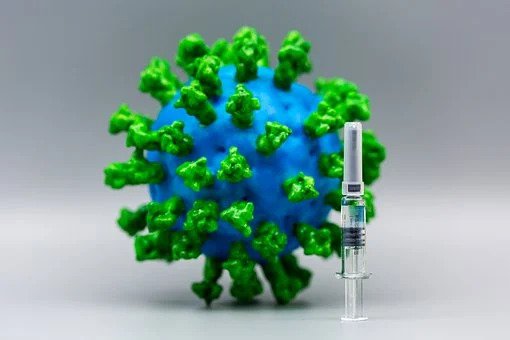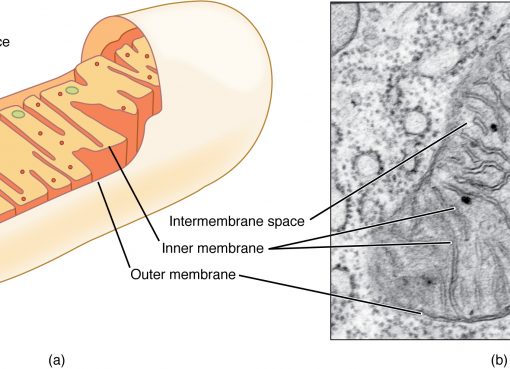Research Highlights
Intranasal vaccine against SARS-CoV-2 Virus
The world scientific community is in hunt for COVID-19 vaccine. Although many vaccine candidates are in clinical trials, the hunt for newer ones is still in progress. In this regard, researchers from Washington University School of Medicine (St. Louis) have examined the efficacy of a nasal vaccine in the laboratory animal model and came-up with promising results. The novel vaccine was designed which consists of spike protein coding sequence of SARS-CoV-2 inserted in a chimpanzee adenoviral vector designated as ChAd-SARS-CoV-2-S. A single intranasal dose of ChAd-SARS-CoV-2-S in mice activated mucosal immunity and induced strong T-cell response. Moreover, the immunized mice produced high level of neutralizing antibodies and the respiratory tract was apparently free from SARS-CoV-2 virus. However, intramuscular injection elicited immune response and provided protection against lung infection but failed to confer sterilizing immunity in the challenge study. Thus, ChAd-SARS-CoV-2-S has ample scope in future as a nasal vaccine to protect against SARS-CoV-2 virus as it infects the respiratory system.
Source: Cell, 2020. https://doi.org/10.1016/j.cell.2020.08.026
CRISPR-based cell therapy in human lung cancer
The CRISPR (Clustered Regularly Interspaced Short Palindromic Repeats)-Cas genome editing tool has tremendous scope in the field of cell-based therapy. Recently, a study has shown that CRISPR-engineered cells could be used safely to treat advanced-stage lung cancer in human. By using CRISPR technology, Lu and co-workers have conducted a human trial in patients suffering from advanced non-small cell lung cancer. The cancer patients were transfused with CRISPR-edited T-cells (Programmed cell death protein 1 (PD1) gene edited T-cells produced ex vivo) and were monitored up to 96 weeks to detect treatment-related adverse events. The off-target editing is one of major limitations of CRISPR technology, but in this study off-target editing rates was very low and no severe treatment-related adverse events were observed. Although the results of this pre-clinical investigation were convincing and offered hopes on safety and feasibility issues of CRISPR technology but further refinement is required in terms of efficacy and specificity.
Source: Nature Medicine, 2020. https://doi.org/10.1038/s41591-020-0840-5
A novel nano-tool to detect colon cancer
Survival rate of patients suffering from cancer depends on the type of cancer and the stage at which it is diagnosed. Cancer therapy is effective, if it is diagnosed at initial stage. However, accurate diagnosis at the early stage of cancer is challenging. Scientists from Saha Institute of Nuclear Physics, S N Bose National Centre for Basic Sciences, and Bose Institute of Kolkata, India developed a nanotechnology-based non-invasive tool to detect colon cancer. The tool consists of atomic force microscopy and spectroscopy along with a nano-sized probe (nano-finger). It is an ultra-sensitive tool that can detect the biomarker hyaluronan (a sugar molecule) secreted by cancer cells as hyaluronan-coated vesicles. Moreover, it was observed that cancerous colon cells release twice more hyaluronan-coated vesicles than normal cells. Again other studies revealed that hyaluronan is readily detectable in body fluids like urine and blood, and so it could be detected by non-invasive means. The researchers of this study concluded that by modulating the nano-finger with other proteins, this tool could be used to detect biomarkers of other cancers.
Source: https://indiabioscience.org/news/2020/a-nanosized-tool-to-non-invasively-detect-cancer-cells
Painless injection is not too far in India
The Indian Institute of Technology, Kharagpur, India has developed a micro-needle for painless delivery of drugs. The micro-needle was coupled with a micro-pump which helps in controlled and precise flow of the drug molecules into the injection site. The thickness of the needle is 55 micrometres which is equivalent to the thickness of a hair (50-70 micrometres) and due to the micro-size, this needle does not touch the nerves at the injection site and fails to produce pain. Preliminary investigation in animal model has shown promising results and it is expected to be in real application after further investigations.
Source: https://www.biotecnika.org/2020/09/micro-needle-drug-delivery-device-developed-by-iit-kharagpur/
Drug for cat coronavirus is effective against SARS-CoV-2
A bench of scientists from University of Alberta, Canada observed that an antiviral agent effective against feline coronavirus has potential use against human SARS-CoV-2 virus. Feline coronavirus infection was successfully treated with a dipeptide-based protease inhibitor (prodrug GC376). Both prodrug GC376 and parent drug GC373 were effective against SARS-CoV and SARS-CoV-2. These drugs inhibited the replication of SARS-CoV-2 virus in cell culture system by inhibiting the activity of Mpro, the main protease of SARS-CoV-2 virus that cleaves the virus polypeptide. The research team is doing preparation for a clinical trial in human suffering from COVID-19.
Source: Nature Communications, 2020. https://doi.org/10.1038/s41467-020-18096-2
Global scenario on COVID-19 vaccine
Vaccination is one of the best strategies to control and prevent viral infection. But development of vaccines against an emerging or novel viral disease within a short period of time is really very tough and challenging. The whole world is waiting for a potent and effective vaccine against COVID-19. Till date, only a single vaccine, viz. Sputnik V (Gam-COVID-Vac) has been approved by the Ministry of Health of the Russian Federation on August, 2020 while several others are in queue with different phases of clinical trials and many are in the pre-clinical stage. The COVID-19 vaccines that are in different phases of clinical trials are highlighted in the table given below.
Table: Status of COIVID-19 vaccines
| Vaccine Name | Vaccine Type | Company/Institute | Status |
| Sputnik V | Viral-vector vaccine | Gamaleya Research Institute, Moscow | Approved by Ministry of Health of the Russian Federation |
| CoronaVac | Inactivated | Sinovac Research and Development Co., Ltd. | Phase-III clinical trials |
| mRNA-1273 (Moderna) | mRNA | Kaiser Permanente Washington Health Research Institute | Phase-III clinical trials |
| Ad5-nCoV | Viral-vector vaccine | CanSino Biologics/Tongji Hospital, Wuhan, China | Phase-III clinical trials |
| AZD1222/Covishield | Viral-vector vaccine | The University of Oxford; AstraZeneca; IQVIA; Serum Institute of India | Phase-III clinical trials |
| ZyCoV-D | DNA | ZydusCadila | Phase-III clinical trials |
| Covaxin | Inactivated | Bharat Biotech; National Institute of Virology | Phase-II clinical trials |
| BBIBP-CorV | Inactivated | Beijing Institute of Biological Products; China National Pharmaceutical Group | Phase-II clinical trials |
| LUNAR-COV19 | Self-replicating mRNA with nanoparticle delivery system | Arcturus Therapeutics and Duke-NUS Medical School | Phase I/IIclinical trials |
| INO-4800 | DNA | Inovio Pharmaceuticals | Phase I/II clinical trials |
| CVnCoV | mRNA | CureVac | Phase I clinical trials |
| COVAX-19 | Recombinant protein | Vaxine Pty Ltd. | Phase I clinical trials |
Source: https://www.raps.org/news-and-articles/news-articles/2020/3/covid-19-vaccine-tracker




